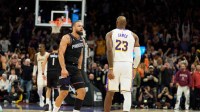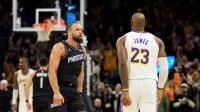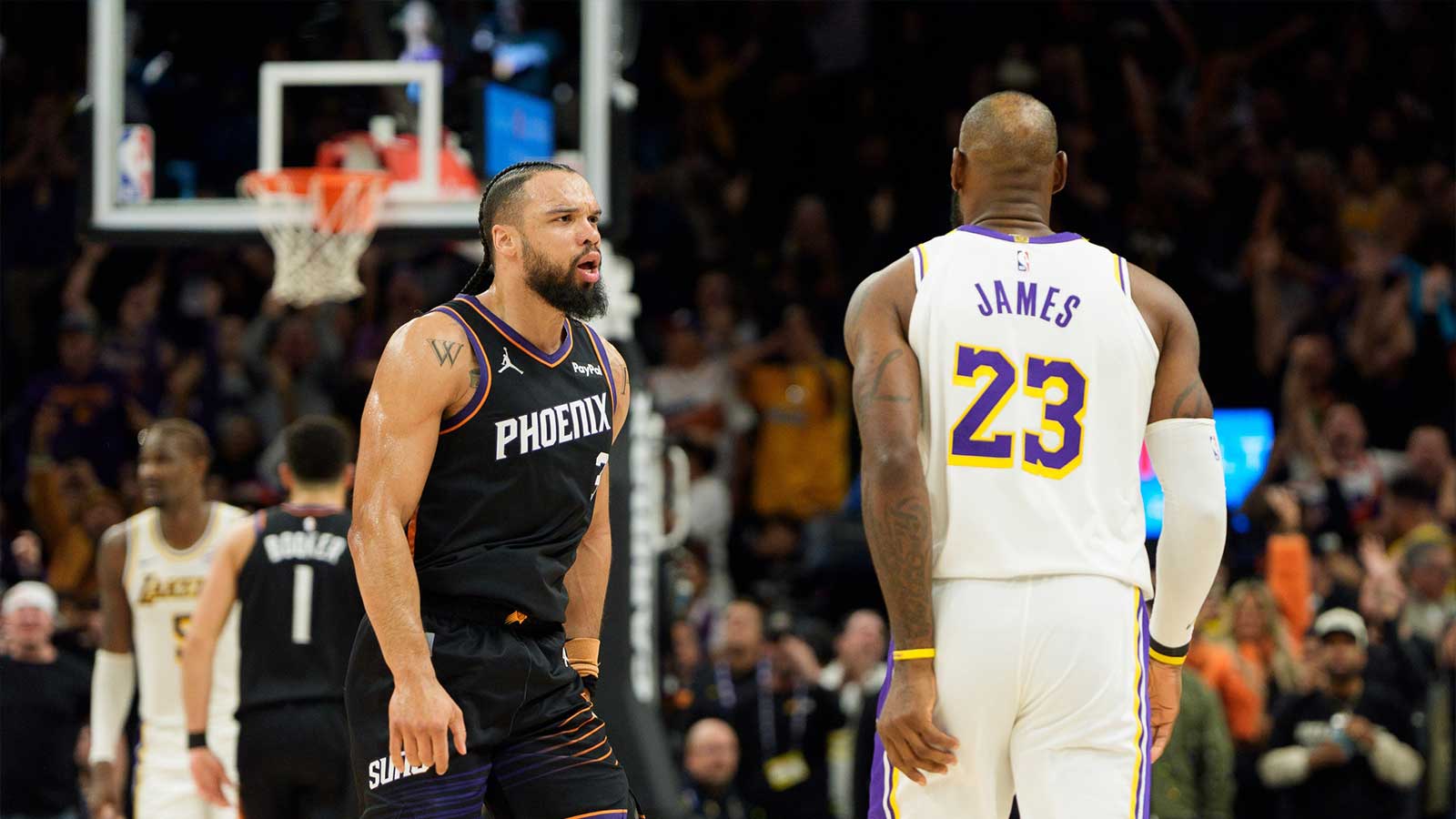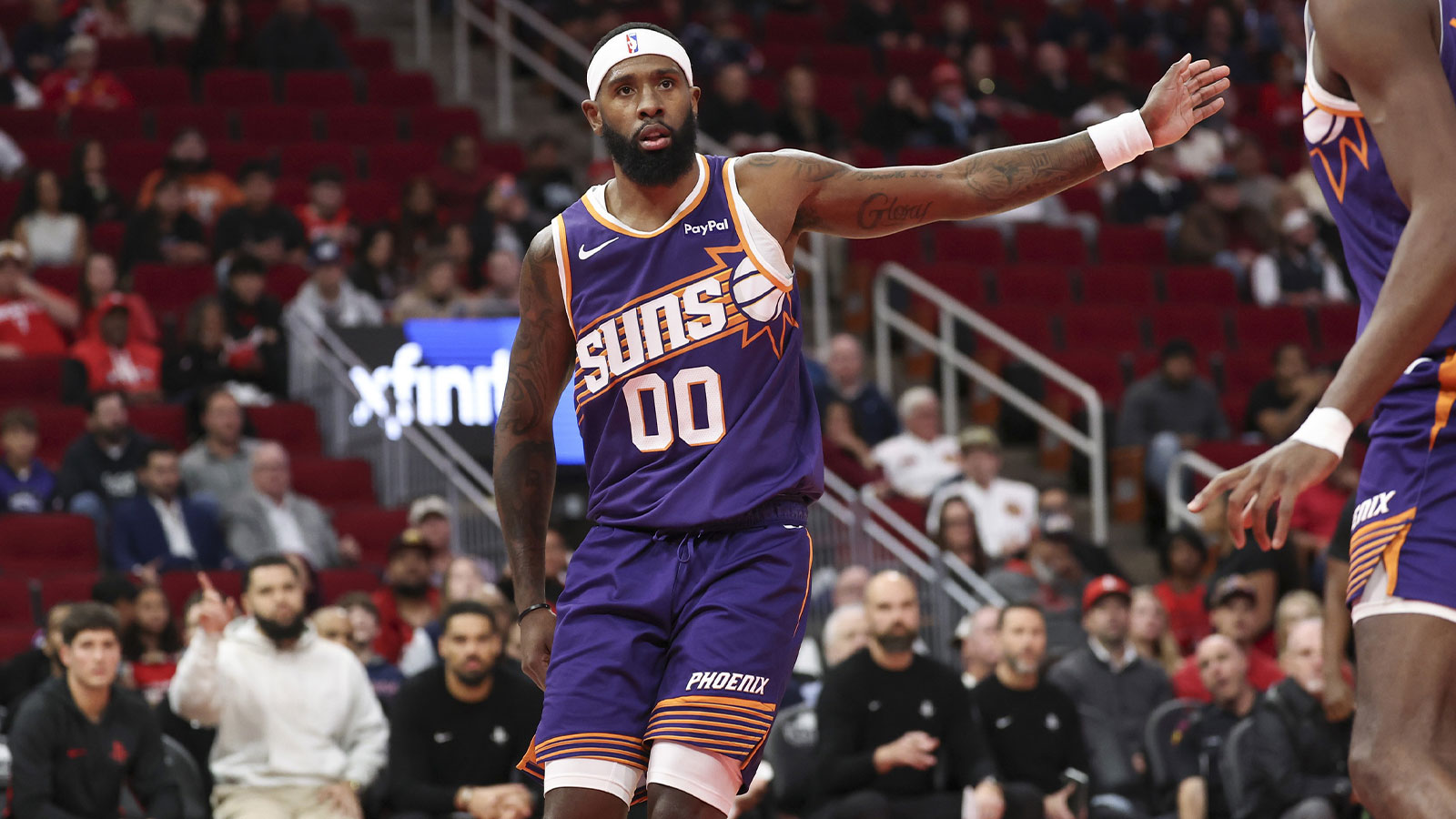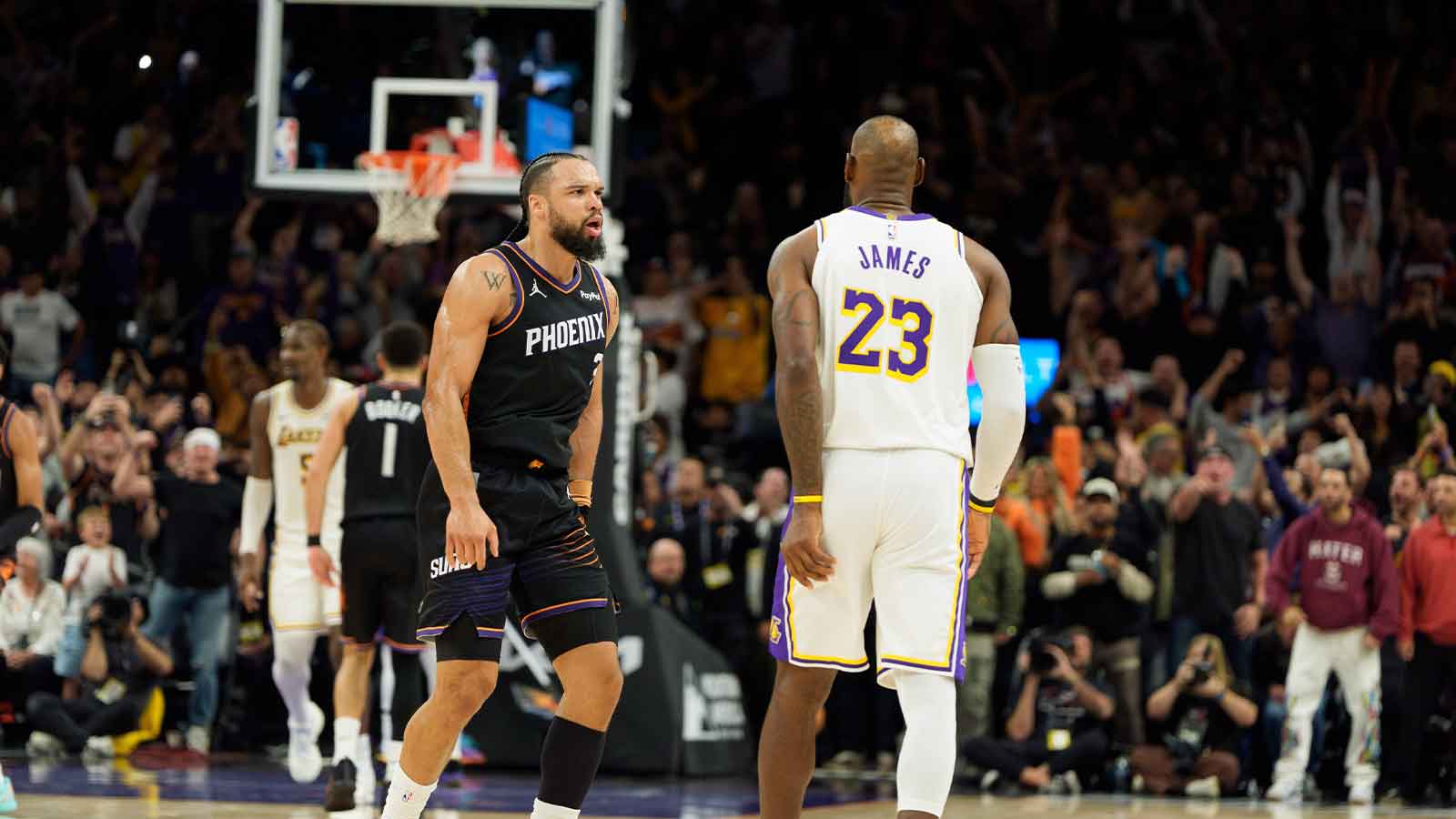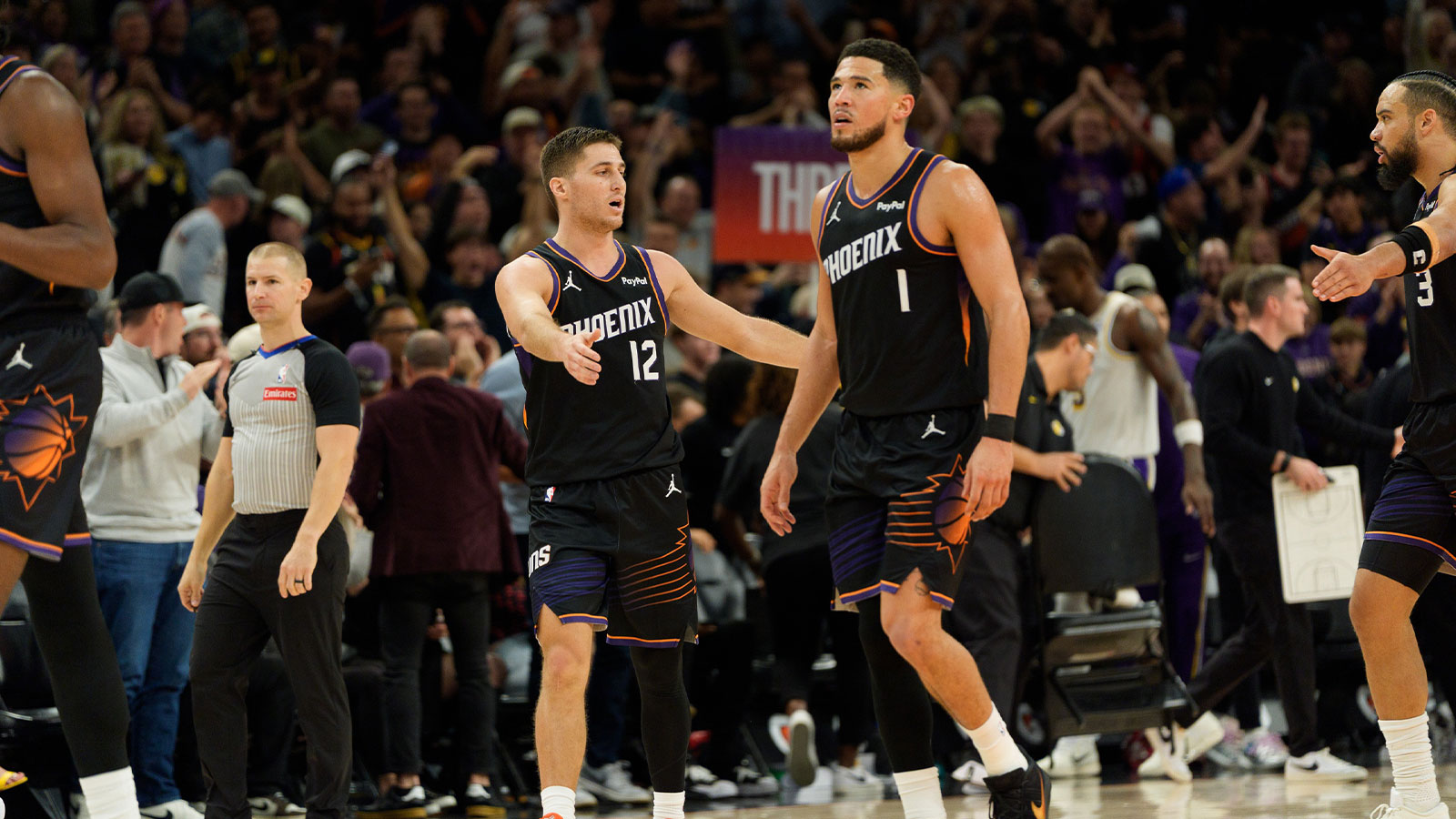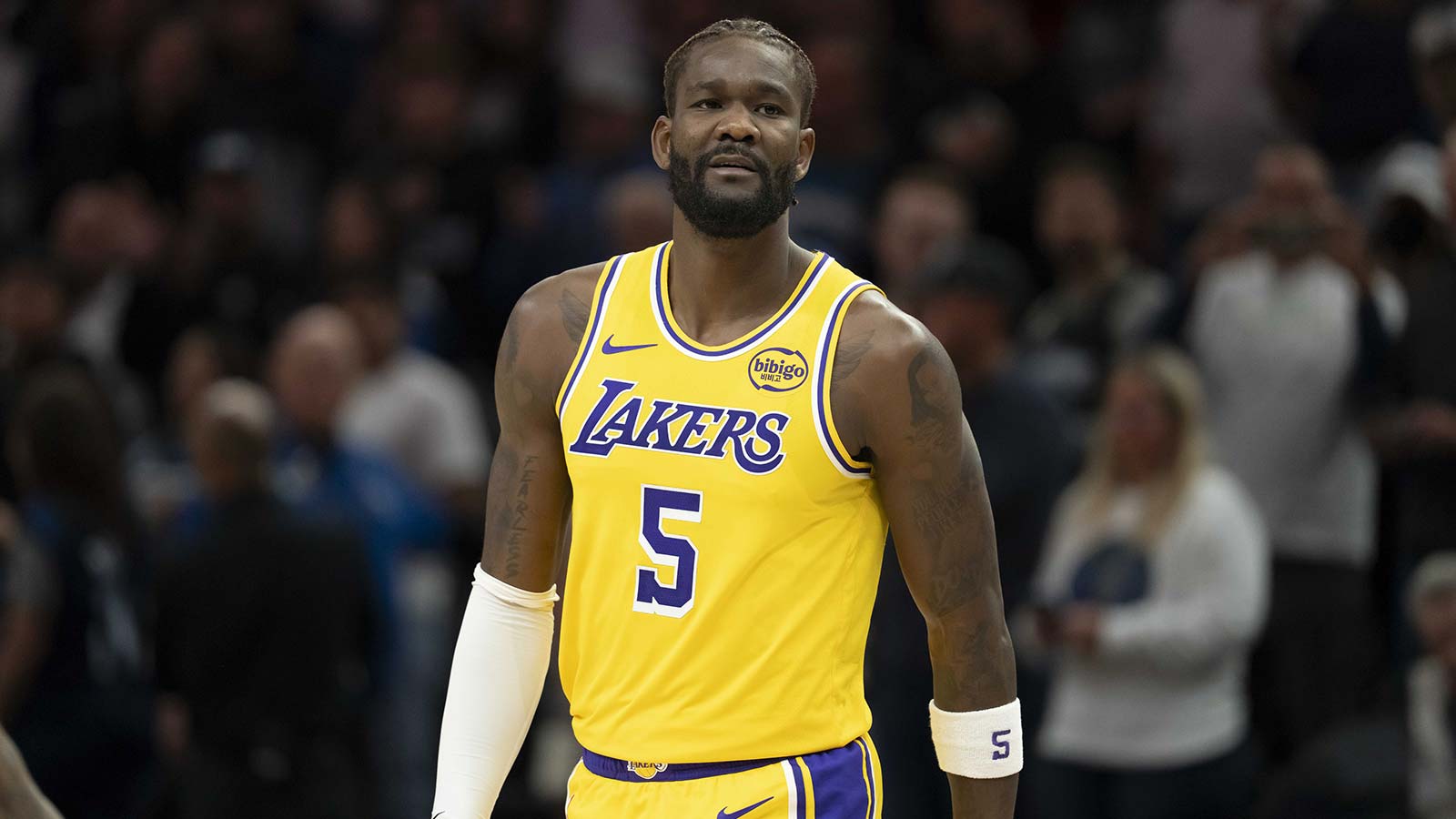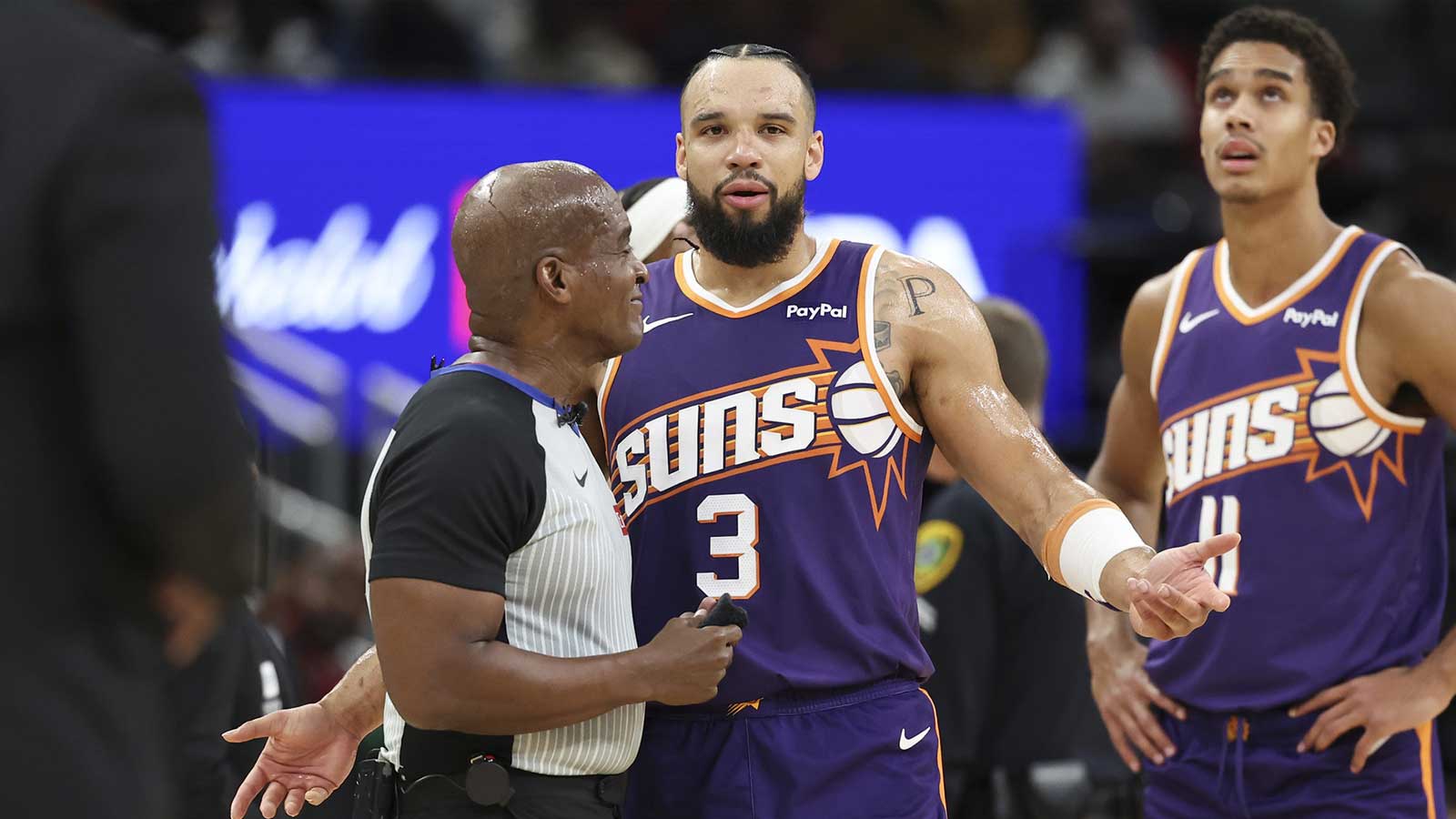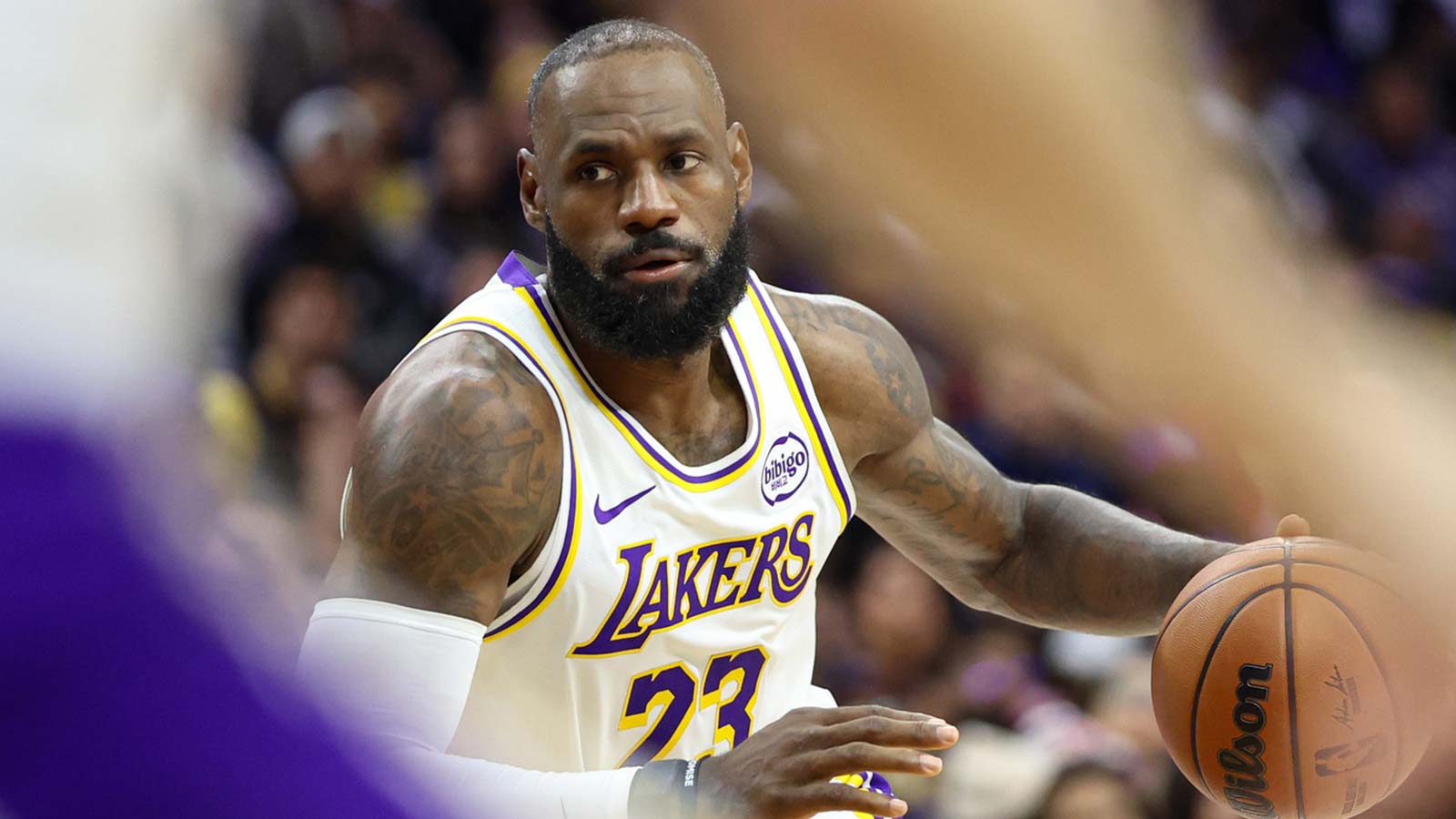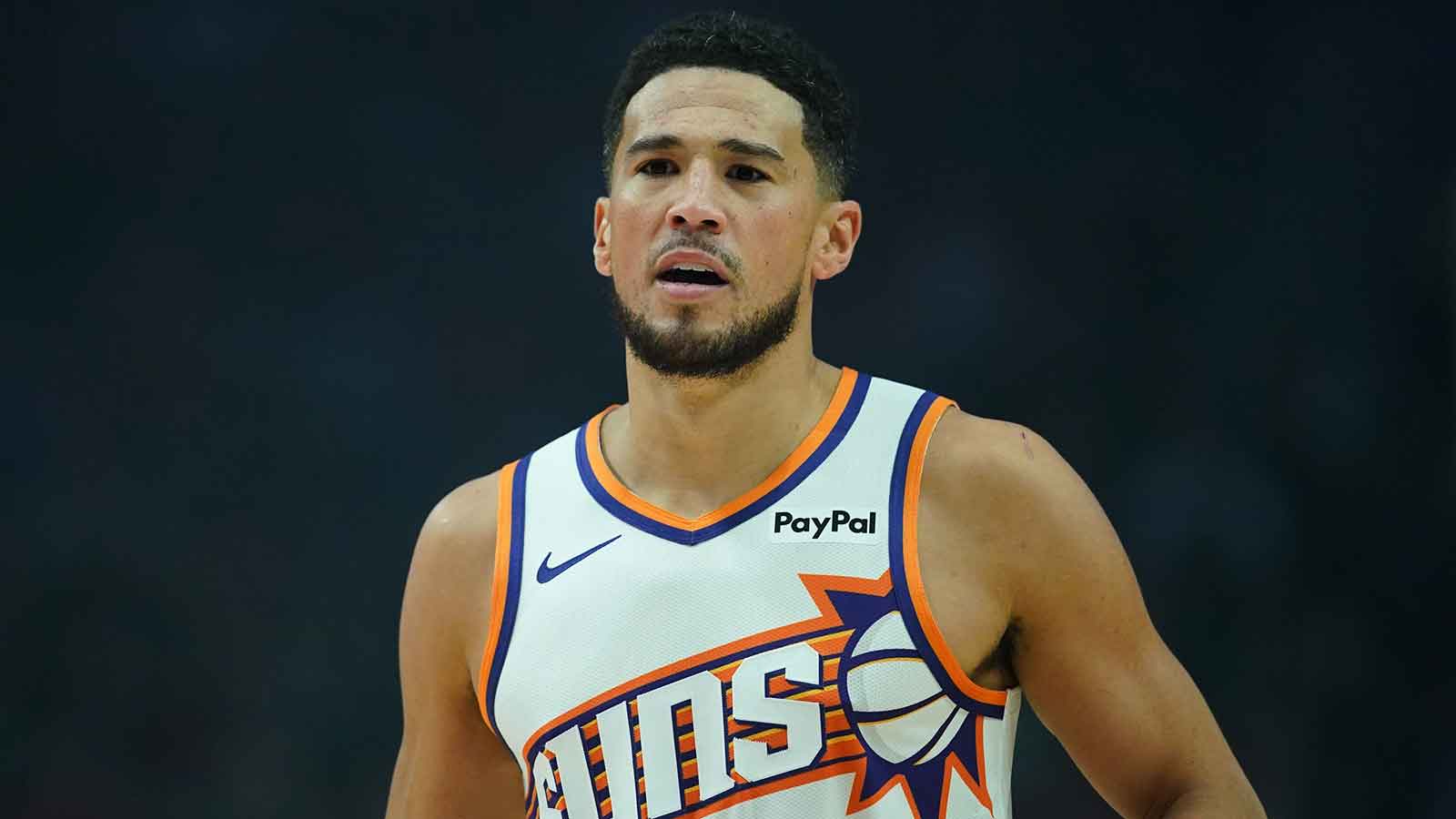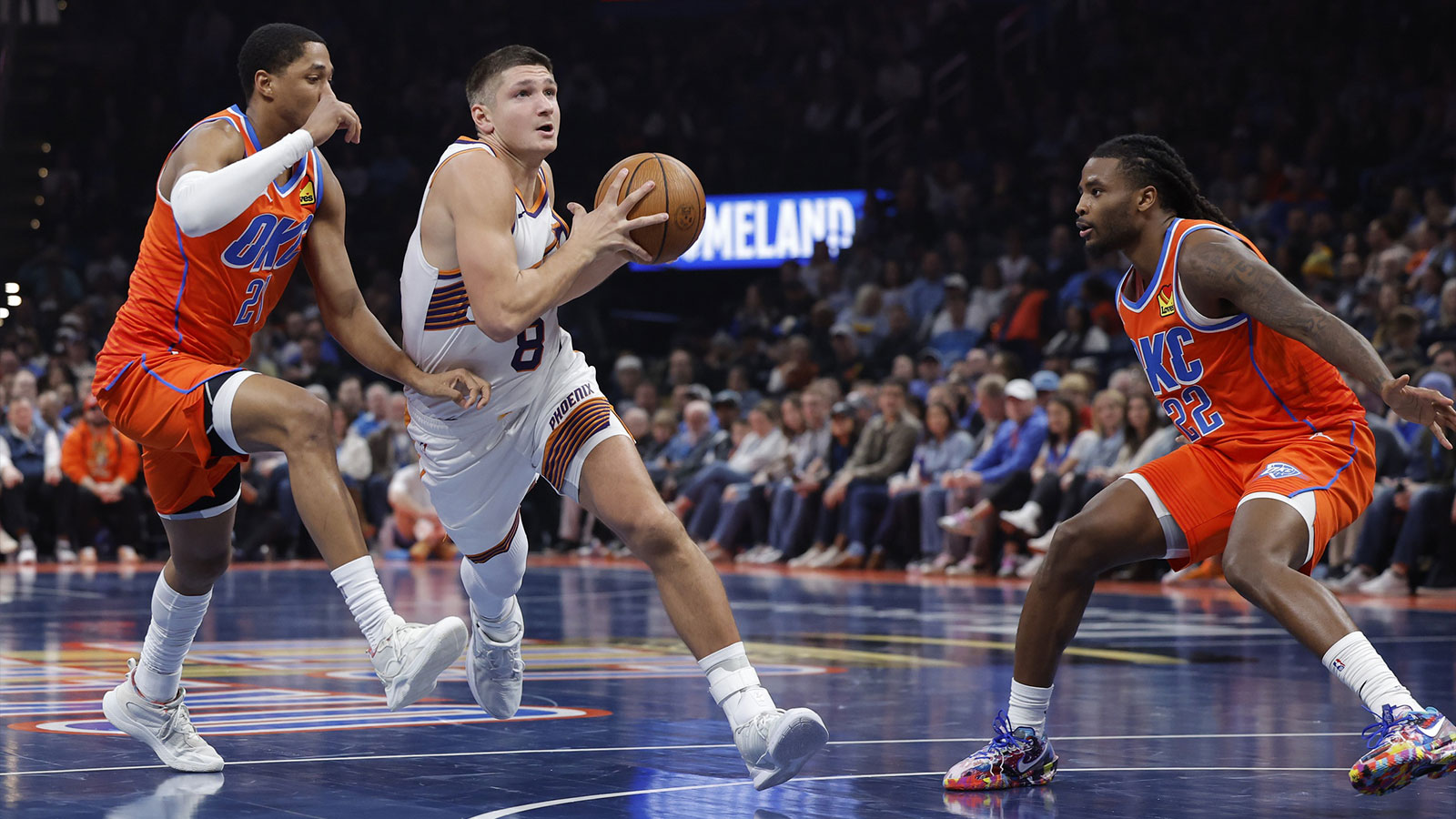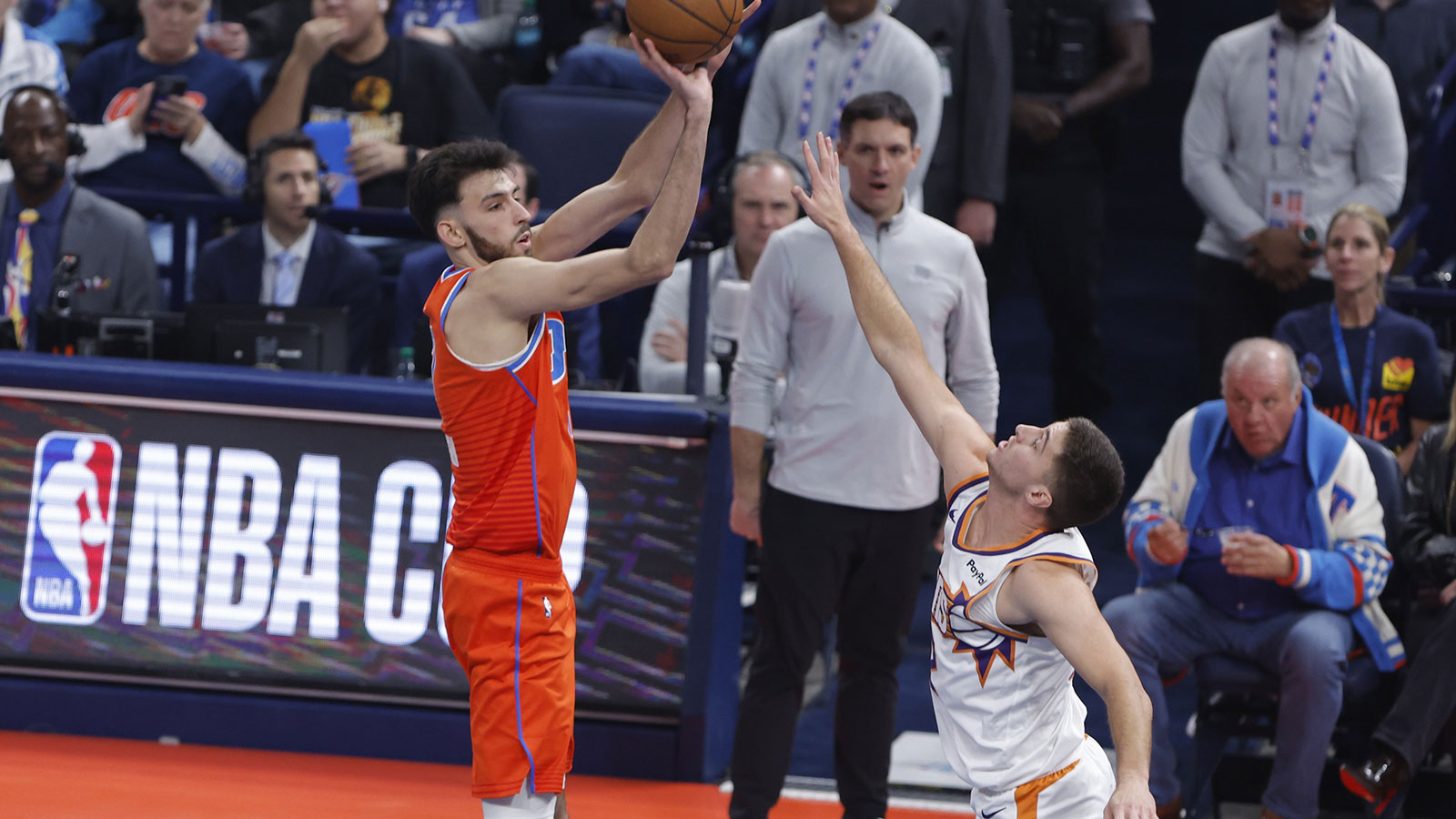The Phoenix Suns aren't always good, but when they are, the Los Angeles Lakers are regularly in their NBA playoff path. Such is the case this year, as Chris Paul saddles up for one more ride in the attempt to reach his first NBA Finals. Standing in the way are LeBron James and the Lake Show in a best-of-seven series which starts this weekend in Arizona. This is something Steve Nash and Tim Duncan can relate to, and it forms a part of the rich backdrop to the latest Phoenix-L.A. playoff clash.
The Suns aren't one of the NBA's most decorated franchises; anything but. Phoenix is still searching for its first NBA title. Yet, when the Suns have been good — if not very good — they have gotten the attention of the NBA.
From Game 5 of the 1976 NBA Finals against the Boston Celtics — one of the greatest NBA games ever played — to the supremely entertaining 2010 Western Conference finals against Kobe Bryant and the Lakers, the Suns have created intensely riveting and memorable playoff moments.
They never carried those moments all the way to a trophy presentation, but the Suns earned respect for the way they fought.
Now, 11 years removed from their last playoff appearance — which ended with a loss to Kobe Bryant in Game 6 of the West finals — the Suns return to the postseason.
As though someone decreed that the Suns always have to face a giant in the playoffs, the Lakers and LeBron are there to welcome them back to the big show this weekend in Phoenix.
It all feels very similar to the last playoff series which felt as large as this one in the Valley of the Sun.
Chris Paul versus LeBron James in 2021 feels a lot like Steve Nash versus Tim Duncan in the 2007 West semifinals, the last playoff series in which the Suns took the court knowing that they had a really good shot at winning it all.
In order to understand what this upcoming Lakers series means to the Suns in 2021, going back to 2007 offers a helpful parallel.
Before there was CP3 in Phoenix, a point guard leading the revival of a franchise hungry for its ultimate breakthrough, there was Kevin Johnson, the maestro for the late-1980s and early-1990s Suns which captured the hearts of Phoenicians. The 1993 team which lost to Michael Jordan and the Chicago Bulls in the NBA Finals still received a parade in Phoenix after finishing as a runner-up.
The successor to “K.J.” in Phoenix was Nash, who came from the Dallas Mavericks and lit a fire under the “Seven Seconds Or Less” Suns under coach Mike D'Antoni, who helped change the NBA game in ways which Steph Curry has taken to another level with the Golden State Warriors.
The Suns were punked by Tim Duncan and the San Antonio Spurs in the 2005 West finals, a rude introduction to the postseason greatness of Gregg Popovich's machine. The Suns had a chance to win it all in 2005, but the Spurs waxed Phoenix in five games. Everyone knew the Spurs were the superior team.
In the 2007 West semis, however, the Suns had two years of experience, two years of taking their lumps and learning how to be tougher. With the top-seeded Dallas Mavericks — a 67-15 juggernaut — being stunned by the Warriors in the first round, that Suns-Spurs series between Nash and Duncan felt like the West finals, with the Utah Jazz playing the Warriors in the other West semifinal.
The 2007 Suns-Spurs series is infamous for Robert Horry's hip-check of Steve Nash late in Game 4 in San Antonio. The Suns won that game to tie the series at 2-2 and reclaim home-court advantage for Game 5 in Phoenix. However, the NBA's decision to suspend Amar'e Stoudemire for leaving the bench area (nothing more) in that sequence — when a teammate got hammered with a cheap shot — was a punishment which didn't fit the crime… if you could even call it a crime.
Without Stoudemire, the Suns lost Game 5 at home. Stoudemire returned for Game 6, but the Spurs — in San Antonio, feeling fully confident and tasting another title — closed out the series.
San Antonio ran through the Jazz in five in the West finals and swept LeBron's Cleveland Cavaliers in the NBA Finals to win a third championship in five seasons, Tim Duncan's fourth with the Spurs.
Phoenix had a fun team with an electric and widely-admired point guard, but its opponent had the cagey veteran with all the right moves who knew how to close the sale when the reputation-making moments of playoff basketball arrived.
Steve Nash dazzled, entertained, and made the Phoenix Suns widely loved… but his opponent was an all-time legend who made the NBA Finals his regular home base and collected a fistful of world championship trophies.
That 2007 drama offers a strikingly accurate subtext for this 2021 Suns-Lakers battle.
The Lakers are expected to win — toss out the 2-versus-7 seed matchup in which Phoenix has the much higher number — but with LeBron James clearly not at 100 percent as he recovers from an injury which sidelined him for several weeks, one can make the claim that the Suns are getting the Lake Show at the right time by facing L.A. earlier in the playoffs rather than later.
Much like 2007, there is a real sense that if the Suns can pull off the very hard task of beating the Lakers, future rounds in the West playoffs — while not a cakewalk — will be very manageable. As in 2007, the Jazz are in the other half of the West bracket, opposite the Suns. Phoenix would have been favored over the Jazz had the two teams met in the 2007 West finals. If they meet in the 2021 West finals, the Suns could realistically be favored again.
First things first for Phoenix and Chris Paul: LeBron. The reigning champions. The proven team. The genuine article. The real deal. The obstacle the Lakers have so frequently been for the Suns in NBA history.
The Suns won 55 games at the start of the 1980s (the 1980 season) and at the end of the 1980s (1989) as well. The Lakers eliminated them.
The Suns made the 1984 West finals, the 1989 West finals, and the 2010 West finals. The Lakers beat them each time.
Sometimes, Phoenix has actually managed to turn aside the Lakers in the postseason. When the Suns beat the Lakers in the 1990 playoffs, Pat Riley was shaken up to the point that he didn't coach the Lakers next year. He took a brief break from coaching and then went to New York to coach the Knicks.
When the Suns won three straight elimination games to survive a first-round series against the Lakers in 1993, the team — led by Kevin Johnson and Charles Barkley — used that escape to go all the way to Game 6 of the finals against Jordan and the Bulls, coming within an eyelash of a Game 7, so close to a world championship.
Suns-Lakers is business as usual in Los Angeles. The Lakers expect to beat the Suns in the playoffs, as is the case this time in 2021.
In Phoenix, however, Suns-Lakers in the playoffs regularly feels larger than life, especially when there's a sense the home team really could go all the way if it can somehow defeat its Purple and Gold nemesis.
Steve Nash — the Phoenix point guard chasing a championship — could not get past the Tim Duncan roadblock posed by the Spurs a decade and a half ago. Now, in 2021, Chris Paul carries the torch from his famous Phoenix predecessor, trying to fire the slingshot which sends a Goliath named LeBron crashing to the ground.
What Steve Nash and Tim Duncan provided in the NBA of 2007, CP3 and LeBron have re-created 14 years later.
Suns-Lakers isn't just a very interesting and important playoff series; it carries the weight and feel of an occasion whose echoes reverberate through decades of basketball history, especially in a hot and dusty desert city which is still searching for that cool sip of water and a first NBA title.
Phoenix has been the home of the Suns since 1968. Today, 53 years later, residents will hope that Chris Paul will do against LeBron what Steve Nash couldn't achieve against Tim Duncan.
History says that the Suns aren't likely to clear this huge hurdle from Los Angeles, but history can always be rewritten. There is no law against that.


